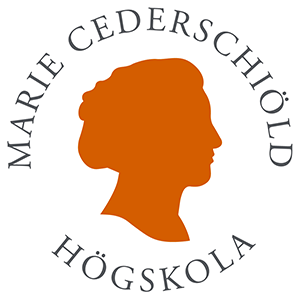Projektets fyra delar
International Visiting Scholar Program
The purpose of International Visiting Scholar Program is to attract philanthropy scholars whose work in the humanities or social sciences can contribute to the Swedish and international conversations on philanthropy, foundations, democracy, and equality. Ideally, such a scholar will bring some clarity to if and how philanthropies, foundations, charities and non-profit-organizations can play democratizing roles in society and not least in the lives of immigrants and other minority groups. Furthermore, such scholars will add to and complement Ersta Sköndal Bräcke’s new Ph.D. program and its strategic, long-term research program on the future of the welfare society in Sweden and beyond, with a focus on how the older, more monolithic welfare state is giving way to an emerging, far more pluralistic welfare society. In practical terms this will take the form of contributing to graduate courses and on-going research projects as well as developing joint research proposals for new projects with colleagues at Ersta Sköndal Bräcke University College. The long-term, strategic aim of the program is thus to strengthen and develop the research on civil society at Ersta Sköndal Bräcke’s Institute for Civil Society Research in general and the research on philanthropy, foundations, charity, and non-profit organizations in particular. The guest scholar program has been made possible through a grant from Riksbankens Jubileumsfond.
A global historian of U.S. philanthropy and the social sciences, Maribel Morey is co-founder and co-editor of HistPhil, a site on the history of philanthropy and nonprofits. Facilitated by an Andrew Carnegie Fellowship during the 2016-18 academic years, she has been working on two book projects. The first book, White Philanthropy: Carnegie Corporation’s An American Dilemma and the Making of a White World Order, is forthcoming with The University of North Carolina Press. Now based in Miami, Morey is establishing an Institute in the social sciences intent on addressing discrimination and bias against the Global Majority in the construction of knowledge in these fields. This research institute at the geographical cross-roads of the Global North and South aims to bring greater geographic diversity in contemporary transnational conversations on political economy, and more specifically, to establish intellectual groundwork for more unified and stable national and international political economies.
International Workshops on Political Economy
National Political Economy Workshop, Thursday, November 7th
Workshop Participants:
- Norbert Götz, Professor, Institute of Contemporary History, Södertörn University, Sweden.
- Yan Long, Assistant Professor, Sociology, University of California, Berkeley, USA.
- Álvaro Morcillo Laiz, Research Fellow, Global Governance Research Unit, Berlin Social Science Center (WZB), Germany.
- Maribel Morey, Assistant Professor of History, Clemson University; Visiting International Professor of Philanthropy, Center for Civil Society Research, ESBH, Sweden.
- Lars Trägårdh, Professor, Center for Civil Society Research, ESBH, Sweden.
- Fadzilah Yahaya, Assistant Professor, History Department, National University of Singapore (NUS).
- Alden Young, Assistant Professor, Department of African American Studies, UCLA; Member, School of Social Science at the Institute for Advanced Study, Princeton, USA.
Workshop Focus: This workshop analyzed various ways that national (or rather to be more historically specific, sub-international) units of society have shaped their political economies both past and present. In this spirit, workshop participants chose geographic regions based on their respective geographic research foci and shared with fellow workshop participants their responses to the following three questions: (1) What roles have philanthropy, nonprofits, the state, and private industry played in providing public goods in this particular national/sub-international community?; (2) Again, thinking from the past to the present, what have been moments of transformative change (assuming there were such moments) in how societal members have viewed the respective responsibilities of philanthropy, nonprofits, private industry, and the state in providing public goods?; and lastly, (2) To be rather transparent in our transnational conversations, what are (and have been) these public goods in this particular national/sub-international community?
Following up from the fall workshop on national political economy in the fall, this spring workshop on international political economy was bringing together scholars from various countries and geographic foci to discuss multiple historical and present-day models of international political economy—that is, past and present models of world communities or world orders, both realized and unrealized. For the workshop, we planned for each participant to choose a past or present visionary (or network of thinkers, activists, or planners) and share these individuals’ views on an ideal world community or world order; how they imagined achieving and sustaining it; and the extent to which they succeeded in its realization. Because of COVID-19, this workshop has been postponed until the 2020-21 academic year.
Public Conversations on Philanthropy, Spring 2020
- February 10th, Lisbet Rausing, co-founder, Arcadia Fund.
- April 16th [rescheduled for upcoming academic year], Felix Oldenburg, Chair, Donors and Foundations Networks in Europe (DAFNE).
- May 7 [rescheduled for upcoming academic year], Alondra Nelson, President, Social Science Research Council (SSRC)
Description: This spring 2020, three leaders in philanthropy and nonprofits in England, Germany, and the U.S. were planning to join ESBH’s Lars Trägårdh and Maribel Morey for dynamic discussions on the role of philanthropic and nonprofit organizations as providers of public goods today. These three leaders included Arcadia Fund co-founder Lisbet Rausing; Donors and Foundations Networks in Europe (DAFNE) Chair Felix Oldenburg; and, Social Science Research Council (SSRC) President Alondra Nelson. Because of COVID-19, the Q&As with SSRC President Alondra Nelson and DAFNE Chair Felix Oldenburg will be rescheduled for the 2020-21 academic year.
Sidinformation
- Senast uppdaterad:
- 4 januari 2022
